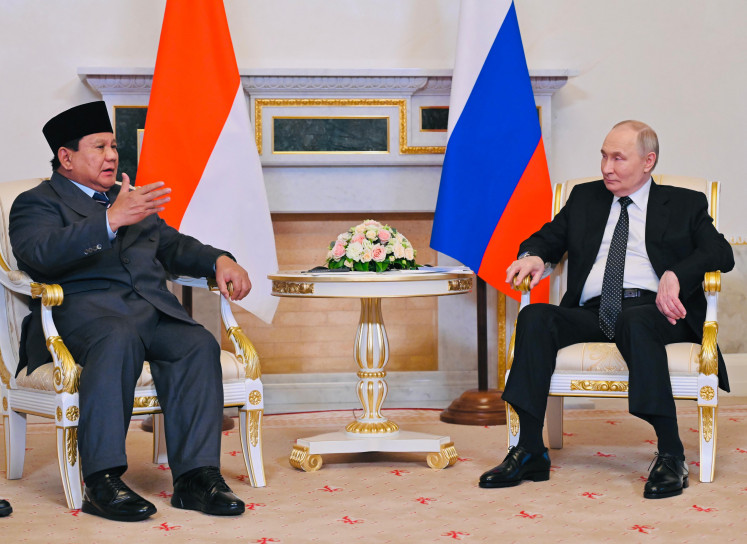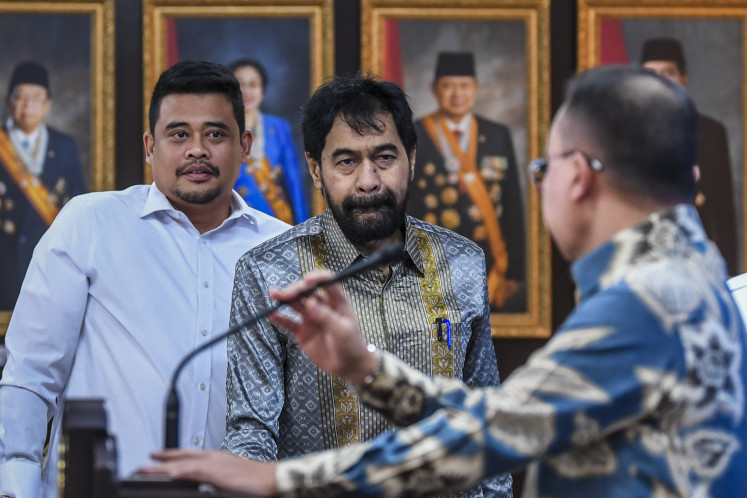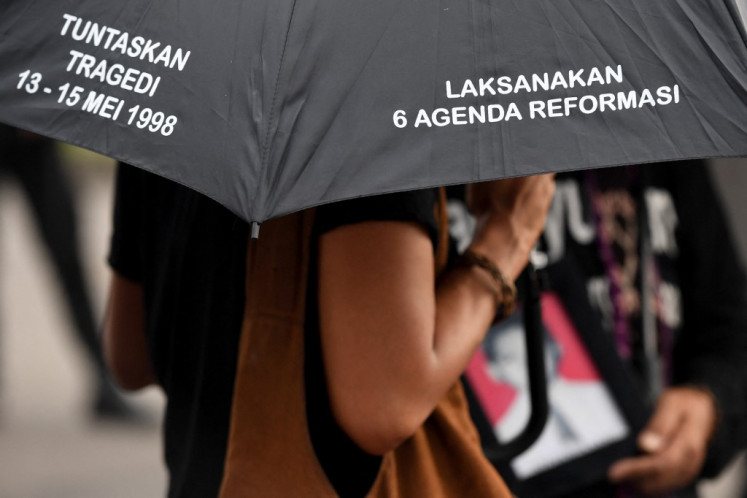Popular Reads
Top Results
Can't find what you're looking for?
View all search resultsPopular Reads
Top Results
Can't find what you're looking for?
View all search resultsAs contractors draw back, RI likely to miss CBM target
Indonesia, Southeast Asiaâs main importer of crude oil and its refined products, is likely to miss its coal bed methane (CBM) output target of 150 million metric standard cubic feet per day (mmscfd) in 2015, a top official has said
Change text size
Gift Premium Articles
to Anyone

I
ndonesia, Southeast Asia's main importer of crude oil and its refined products, is likely to miss its coal bed methane (CBM) output target of 150 million metric standard cubic feet per day (mmscfd) in 2015, a top official has said.
The Deputy Energy and Mineral Resources Minister Susilo Siswoutomo said on Friday that delays might happen given the current situation, where all of the country's CBM contractors had yet to submit their plan of development (PODs) to the regulator.
A POD contains the details of the contractor's review on the economy and technicalities of a project before further expanding it.
'Given the situation, the expected CBM output target might be delayed from the original goal of 2015 to 2018,' said Susilo in a telephone interview with The Jakarta Post.
Echoing Susilo, the Energy and Mineral Resources Ministry oil and gas chief Edy Hermantoro separately acknowledged that the land acquisition issues as well as the procurement of the CBM rigs remained the main obstacles in developing the unconventional hydrocarbon reserves in the country.
'But the contractors have already made their commitments and thus we will try to support them to meet their commitments,' he said.
Indonesia, which largely depends on imports for its energy security, is set to launch its first power plant using unconventional gas CBM reserves this year.
Virginia Indonesia Co. (VICO), which operates Sanga-Sanga block, will supply CBM to state-owned electricity firm PLN's gas-fired power plant in Sangatta, East Kalimantan. The project will be launched on April 30.
VICO, a joint venture between British giant BP and Italy's ENI, will supply half a million mmscfd of CBM from 15 CBM wells on the Sanga-Sanga block, and also provide conventional gas to the nearby Bontang liquefied natural gas plant.
The CBM-powered plant is estimated to be able to generate between two and four megawatts of power or capable of providing electricity to around 4,000 households in the area
Despite the good news, VICO has yet to submit its POD for the CBM project in Sanga-Sanga block to the upstream oil and gas regulatory special task force SKKMigas.
VICO Indonesia general affairs and communication manager Lies Tjokro had said the company would continue to evaluate the CBM reserves at its Sanga-Sanga block for the next three years while continuing to supply gas to the plant.
Out of 59 companies in Indonesia on the CBM sector, only 42 of them have received their production-sharing contracts (PSCs) from the regulator, with only three of them deemed to be 'showing positive results'.
SKKMigas spokesman Elan Biantoro said separately the contractors include VICO, Indonesia's PT Ephindo, which operates the Sangatta block in East Kalimantan and publicly listed PT Medco Energy Internasional in Barito, South Sumatra.
'However, even those companies have yet to submit their PODs to the regulator, because while the risk in the CBM sector is lower than that of the conventional hydrocarbon industry, it could take about 10 years of exploration before contractors can decide the economy of their basins,' said Elan.
In the conventional oil and gas business, while the risk of finding dry holes is extremely high, the companies will only need around three to six years of exploration before making their mind up on their working areas, he added.
Indonesia's CBM reserves are estimated to be around 453 trillion cubic feet, mainly in Sumatra and Kalimantan, according to data from the Energy and Mineral Resources Ministry.
However, as of today, the Indonesian government records the investment in the CBM projects is only around US$150 million with the CBM gas pricing of $7.5 per million British thermal units (mmbtu).
Separately, the Jakarta-based energy sector think-tank ReforMiner Institute executive director Komaidi Notonegoro said the government must provide many incentives and clearer regulations for contractors to jump in the CBM sector as the industry is still 'very green' in the nation.
'The government must not drag its feet and let the contractors do all the work. It must be proactive should it really want to develop the unconventional hydrocarbon reserves as the future of our energy security,' he said.








